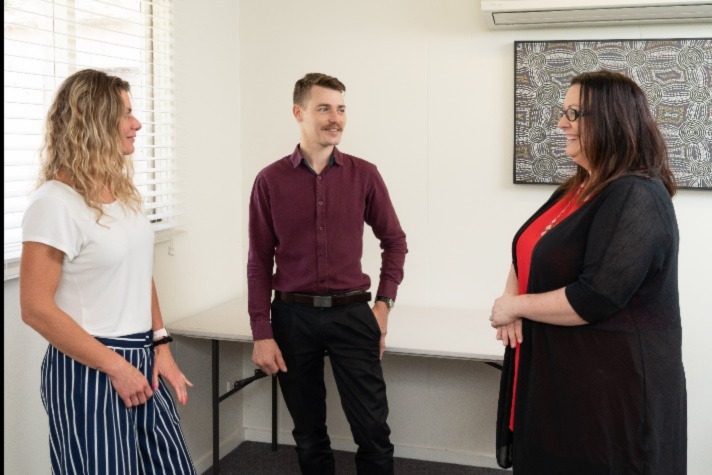Communication skills in the workplace
Published by MAXSolutions on September 05, 2022

No matter what job you have, communication skills in the workplace are so important.
Whether it is to discuss safety issues, to help work more effectively as a team or to be more comfortable with the expectations of your role.
Knowing how to communicate effectively will make your working life easier, more enjoyable and maybe even lead to opportunities to grow your career.
What is effective communication in the workplace?
Being an effective communicator will look different depending on the industry you work in and your role and responsibilities.
Some jobs that rely on face-to-face interactions with customers will require strengths in both speaking and listening skills, as well as an ability to read non verbal communication or ‘body language’.
Roles where you are creating, repairing, or building things might require the ability to listen carefully to avoid mistakes.
Other jobs may include large amounts of creative writing or technical writing and may require keen skills in this area.
No matter the job you will likely have to use a wide range of communication skills so while it’s great to focus on what’s most important for your job, it’s a good idea to work on all areas.
Important communications skills in the workplace
Effective communication in the workplace comprises many different skill sets. The following are some of the more important skills employers value:
Active listening – One of the best ways to retain information is to not be a passenger in a conversation.
Pay full attention to the person speaking, keep an open posture and respond where appropriate with small comments that show you are interested.
Focus on what the person is saying and not how you will respond. This gives a much better chance of you remembering all of the important details of the conversation.
Positive body language – Body language is important for both listening and speaking.
Negative body language can make people feel disrespected or that the information you are trying to convey is not important.
Having your arms crossed, being turned away from the target listener or giving little to no eye contact are all examples of things you should try to avoid.
Clarity – make sure the point you are trying to make is clear. You don’t need to fill a conversation or email with additional unrelated information that may confuse your audience.
Friendliness – While being clear is important it’s a good idea to balance that with a level of friendliness.
Whether it’s a customer, teammate, or boss that you are speaking to if you are too direct it can sound rude.
Empathy – You may find yourself having a conversation with people that are rude or seem to be in a bad mood or may not be very focused.
Something may have happened that day that has upset them so it’s important to not take it personally.
If you find the conversation is going nowhere, sometimes leaving the conversation and having it at another time is the better option.
Open-mindedness – You may work with a range of people from diverse backgrounds with different ability perspectives and cultures.
Being able to respectfully communicate or having the ability to communicate in different ways is important to ensure that you get your message across with no misunderstanding.
How to improve your communication skills
There are many positive steps you can take to improve your communication skills no matter the area you need to work on.
The Employability Skills Training program is designed to help you develop the core workplace communication skills to both find a job as well as thrive in your workplace once you are employed.
If you need a bit more support, you may be eligible to join the SEE program which is focused on a broad range of literacy and numeracy skills needed for long-term employment.
Interested in improving your communication skills?
Share
Tags
Found this useful?
Help and advice
Our blogs are about helping people seek the information that they need for their steps in the workforce.














_1.jpg)





























.jpeg)

















